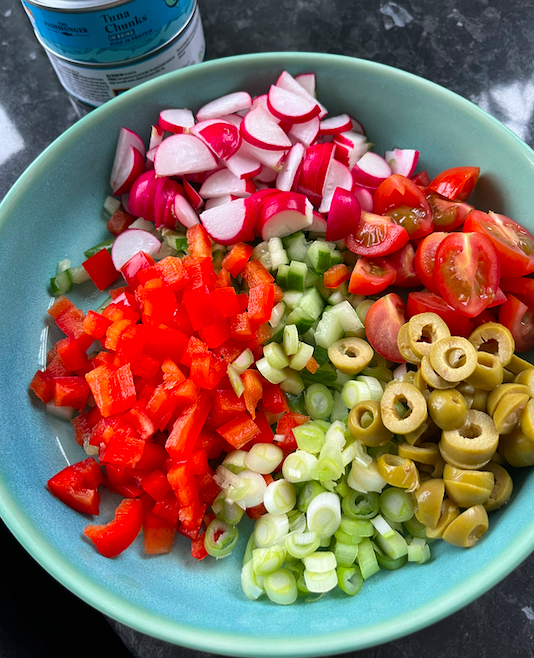Small changes to improve gut health
The older we get the more attention we should pay to gut health. Around menopause, our digestive system slows down causing bloating or even constipation. Gut health is linked to the immune system and may even affect weight due to how well calories and nutrients are absorbed from the food we eat.
Gut health is all about bacteria and the aim is to increase the amount of healthy bacteria we have. Experts now recommend that a good way to do this is to eat 30 different plant foods a week, which is a whole lot easier than it sounds, because this includes fruit, vegetables, pulses, nuts, seeds, wholegrains, herbs and spices.
Some plant foods increase the amount of healthy bacteria, others feed the good bacteria, so the wider variety you can eat, the more likely you’ll be doing both.
The good news is that it’s really quick and easy to boost
Easy Breakfast Changes
Spice up scrambled eggs with turmeric, black pepper, chilli flakes and chopped coriander
Add berries, nuts, seeds and cinnamon to porridge
Add live yoghurt or kefir to mixed berries and sprinkle with nuts, seeds, oats and chia seeds
Make protein smoothies with different combinations of whey or vegan protein and add extra plant-based ingredients like berries, coconut, cocoa powder, chia seeds, flax seeds, nut butter, cinnamon, allspice, turmeric
QUICK LUNCHTIME RECIPE
Add chopped, mixed vegetables to a tin of tuna or, for a vegetarian/vegan option use tinned pulses instead
Easy Lunch Idea
Chop peppers, cucumber, spring onion, olives, tomatoes and radish and mixed into tinned tuna or salmon. Have a whole tin to make sure you hit your protein goals.
If you are vegetarian or vegan use tofu or tinned pulses instead.
Season with oil, vinegar, salt and pepper, or a dollop of mayonaisse if you prefer.
Other veg will work well too. Try celery, red onions, grated carrots, courgettes and chopped parsley.
Serve with lettuce if you are eating a low-carb lunch, or have it with oat cakes or pitta.
Boost evening meals
For evening meals, add extra vegetables, herbs and spices to your favourite meals, or serve with a large mixed salad.
If you like something sweet after a meal, try berries with natural yoghurt or a small bar of dark chocolate, which counts as one of your 30 a week!
MORE TIPS TO IMPROVE DIGESTION AND REDUCE BLOATING
Eating too fast and not chewing your food properly can also cause bloating. I am certainly guilty of this and have been making a concerted effort to slow down when I eat.
Another tip to reduce bloating and improve digestion is not to drink during meals. Having too much fluid can dilute digestive enzymes making it harder for the body to break down the food properly.
Leaving 4-5 hours between meals allows the body sufficient time to digest each meal before the next one. Constant snacking puts extra pressure on the digestive system, so this is another good reason to switch to 3 meals a day.
Pay attention to how different foods affect you and avoid those that make you bloat. I love cauliflower and all pulses, but unfortunately they don’t like me. Give your body an easier time by choosing foods that suit you better.
Change your relationship with food for good
Join my 8-week weight loss plan and learn how to eat a healthier diet and create a healthier relationship with food.

